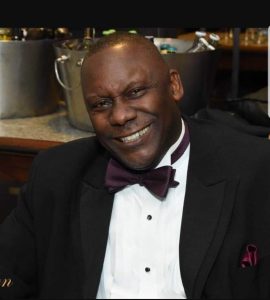#NNPA BlackPress
PSU’s Black Studies Department Marks 50 Years
NNPA NEWSWIRE — “Higher education had not done a good job of looking at our past, or the sociodynamics of the country, the cultural dynamics, in an honest and diverse way,” Professor Emeritus Darnell Millner told The Skanner. “It had been committed to a very Eurocentric view of both the past and the present, and the assumption that it would be the same in the future. And so, what even a small Black Studies department was able to do was to begin to change the intellectual and academic environment on a university campus in ways that were pretty remarkable and unpredictable.”
Despite budgetary concerns, the department remains one of the strongest and longest-lasting of its kind in the country.
By Saundra Sorenson, The Skanner News
The Black Studies Department at Portland State University turns 50 next year, and according to faculty, it’s a hard-won anniversary–and a cause for celebration.
Professor Emeritus Darnell Millner has been with the department for 45 of those years and recalls that 1970 saw the launching of many ethnic studies departments around the country.
“Higher education had not done a good job of looking at our past, or the sociodynamics of the country, the cultural dynamics, in an honest and diverse way,” Millner told The Skanner. “It had been committed to a very Eurocentric view of both the past and the present, and the assumption that it would be the same in the future. And so, what even a small Black Studies department was able to do was to begin to change the intellectual and academic environment on a university campus in ways that were pretty remarkable and unpredictable.”
But establishing those departments was a community effort.
“The Black Studies department here and in many other places around the country was created basically by the activism on campuses of the Black student unions that had been created in the late 1960s,” Millner said. “And also, by the involvement of the Black communities around the nation and here in Portland that didn’t feel like higher education was doing a very good job in addressing the needs of Black people or the Black community.”
Millner said that across the country, many old guard university administrators and faculty looked down on Black Studies as “a political movement rather than an academic one,” often arguing that ethnic and women’s studies were not legitimate disciplines on a college campus.
Ultimately faculty, administrators and members of the public who saw the positive in Black Studies won out–especially at public universities like PSU.
“The contradiction was that the universities were saying ‘This is a place where you can achieve, you can gain access to mainstream resources,’ but they were coming up against explicit and implicit forms of anti-blackness,” Prof. Ethan Johnson, chair of Black Studies at PSU, told The Skanner. “And so they organized, and I think public education–specifically because it’s based on our tax dollars–became a central place for the struggle.”
Millner recalled coming to the university as a young history teacher.
“The universities of the country had not really trained many professionals, many black academics, many people who had an interest in making higher education, academics, their career,” he said. “And that was certainly true of me as well. When I was a young man, when I was going to high school in the sixties, when I was going to college in the sixties, there was no such thing as Black Studies. So, there was no way I could anticipate that that would be the career path that I was going to follow. Our generation essentially created that new career path out of whole cloth.”

Faculty member and former Black Studies chair Darrell Millner lecturing in 1975. (courtesy of PSU)
Struggles continue
But Black Studies remains the smallest department at PSU, and some faculty are concerned by what they see as a lack of support from the university. Johnson confirmed Black Studies has only ever had four tenured full-time professors at a time and will be losing two this year with the retirement of Dr. Derrais Carter and Dr. Winston Grady-Willis. Johnson said that PSU administrators have indicated there is no funding to hire their replacements.
In a letter to interim dean Matthew J. Carlson last month, Johnson called the current status of the Black Studies department “precarious.”
“The already dire representation of Black faculty and staff on campus will be even further diminished,” he warned.
Dr. Pedro Ferbel-Azcarate, an assistant professor who has been with the department for more than 20 years, agreed that “lack of institutional support” was a burden to Black Studies faculty.
“We’re supposed to be teaching classes and doing research, but we’re always in a crisis mode, and we don’t get enough support to even resolve conflict in our own department,” Ferbel-Azcarate told The Skanner.
Johnson pointed out that 10 Black faculty and staff members left PSU in the past year, and argued that the university struggles with the retention of Black employees and students alike.
“Oregon has the highest dropout rate for Black high school students in the country,” Johnson told The Skanner. “And similarly, at Portland State, Black kids have the lowest graduation rate, even though academically they perform on par with other comparative groups. So it’s more a question of the financial resources that they don’t get, which keeps them from graduating.”
Johnson doubts the university’s assertion that budget constraints prevent his department from being able to maintain its faculty size.
“They’ll build a stadium for basketball, which is mostly for young black men to play, but they won’t invest in our intellectual development,” he said.
Community connections
But Black Studies Prof. Shirley Jackson, former chair of the department, does not agree that funding woes are the Black Studies program’s greatest obstacle. She believes the department has not done enough to connect to the Black community.
“I started at Portland State in January 2016 and was doing my part in terms of making sure that we were involved in the community,” Jackson told The Skanner. “I wanted to have this connection where we’re not just simply this department that lives in a vacuum. We came about because of the community and the support that they gave us when we were in our very early stages. And that to me was something that could not be overlooked. But prior to my coming to Portland State, it seemed as though no one was really doing that in the department.”
Jackson also expressed frustration with the number of Black employees who had left the university in recent months, and said she is working with the president’s office at PSU to explore the possibility of reinstating a campus-wide ombudsman to better serve students and staff who experience inequity at the school.
Jackson told The Skanner she filed a complaint with Oregon’s Bureau of Labor and Industries last month in response to what she described as unequal treatment from her male colleagues, as well as a number of incidents on campus and within the department that made her feel unsafe. She said that PSU administrators were unresponsive to her requests for support.
Department longevity
PSU’s Black Studies department has outlived many similar departments at public universities nationwide. Millner told The Skanner this was due to the fact that PSU has always committed to funding the department through its budget, while many other departments depended on government funding that was subject to changing political tides.
“That doesn’t mean it was easy,” Millner said. “Because in the 50 years since Black Studies got started here, the Oregon university higher education system has gone through many periods of crisis, many periods of reduced commitment. And it was always a battle to protect your budget, to have the resources to continue. You always had to fight for that, and you still do today.”
Johnson points out that unlike most public universities, there is no Ethnic Studies general education requirement at PSU–a mandatory course that typically drives students into areas of study they might not have considered, and which could capture their interest and potentially lead them to a new major or minor.
“It’s not just for Black students,” Millner said. “People who potentially gain the most from a Black Studies experience are people from the majority culture, who because of our history and because of the way that society was organized and because of the legal nature and the institutional nature of separation and segregation and Jim Crow laws, before they get here, they’ve had very little opportunity to learn the history of a race or a group other than their own.
So, it’s eye-opening for them.”
Ferbel-Azcarate, who identifies himself as the only Black Studies faculty member not of direct African descent, says that despite the ups and downs in his department, he sees reason to hope.
“I am finding that students, at least in PSU, will arrive in our classrooms with a greater awareness and knowledge around race and identity,” he said.
Ferbel-Azcarate describes the department as “both interdisciplinary and multidisciplinary.”
“I’m an archaeologist, Darrell’s a historian, Ethan does work in education, Shirley’s a sociologist,” he said. “Some people are Black Studies-focused. So you get exposed to different ways of approaching a topic: the multidisciplinary of it, and the interdisciplinary of it, makes it like a great place for critical thinking, and for the consideration of multiple perspectives.”
“It changes the dynamic of the discussion,” Millner agreed. “And it opens up possibilities and considerations that had not existed before those kinds of programs existed on college campuses, and that’s probably what I’m most pleased and satisfied with in terms of the contributions that a department like Black Studies can make to a university community.”
#NNPA BlackPress
Beloved Actor and Activist Louis Cameron Gossett Jr. Dies at 87
NNPA NEWSWIRE — Louis Gossett Jr., the groundbreaking actor whose career spanned over five decades and who became the first Black actor to win an Academy Award as Best Supporting Actor for his memorable role in “An Officer and a Gentleman,” has died. Gossett, who was born on May 27, 1936, in Brooklyn, N.Y., was 87. Recognized early on for his resilience and nearly unmatched determination, Gossett arrived in Los Angeles in 1967 after a stint on Broadway.
The post Beloved Actor and Activist Louis Cameron Gossett Jr. Dies at 87 first appeared on BlackPressUSA.

By Stacy M. Brown
NNPA Newswire Senior National Correspondent
@StacyBrownMedia
Louis Gossett Jr., the groundbreaking actor whose career spanned over five decades and who became the first Black actor to win an Academy Award as Best Supporting Actor for his memorable role in “An Officer and a Gentleman,” has died. Gossett, who was born on May 27, 1936, in Brooklyn, N.Y., was 87. Recognized early on for his resilience and nearly unmatched determination, Gossett arrived in Los Angeles in 1967 after a stint on Broadway.
He sometimes spoke of being pulled over by law enforcement en route to Beverly Hills, once being handcuffed to a tree, which he remembered as a jarring introduction to the racial tensions of Hollywood. In his memoir “An Actor and a Gentleman,” Gossett recounted the ordeal, noting the challenges faced by Black artists in the industry. Despite the hurdles, Gossett’s talent shone brightly, earning him acclaim in groundbreaking productions such as “A Raisin in the Sun” alongside Sidney Poitier. His Emmy-winning portrayal of Fiddler in “Roots” solidified his status as a trailblazer, navigating a landscape fraught with racial prejudice.
According to the HistoryMakers, which interviewed him in 2005, Gossett’s journey into the limelight began during his formative years at PS 135 and Mark Twain Junior High School, where he demonstrated early leadership as the student body president. His passion for the arts blossomed when he starred in a “You Can’t Take It With You” production at Abraham Lincoln High School, catching the attention of talent scouts who propelled him onto Broadway’s stage in “Take A Giant Step.” His stellar performance earned him the prestigious Donaldson Award for Best Newcomer to Theatre in 1952. Though initially drawn to sports, Gossett’s towering 6’4” frame and athletic prowess led him to receive a basketball scholarship at New York University. Despite being drafted by the New York Knicks in 1958, Gossett pursued his love for acting, honing his craft at The Actors Studio under the tutelage of luminaries like John Sticks and Peggy Fury.
In 1961, Gossett’s talent caught the eye of Broadway directors, leading to roles in acclaimed productions such as “Raisin in the Sun” and “The Blacks,” alongside legends like James Earl Jones, Cicely Tyson, Roscoe Lee Brown, and Maya Angelou. Transitioning seamlessly to television, Gossett graced small screens with appearances in notable shows like “The Bush Baby” and “Companions in Nightmare.” Gossett’s silver screen breakthrough came with his role in “The Landlord,” paving the way for a prolific filmography that spanned over 50 movies and hundreds of television shows. From “Skin Game” to “Lackawanna Blues,” Gossett captivated audiences with his commanding presence and versatile performances.
However, his portrayal of “Fiddler” in Alex Haley’s groundbreaking miniseries “Roots” earned Gossett critical acclaim, including an Emmy Award. The HistoryMakers noted that his golden touch extended to the big screen, where his role as Sergeant Emil Foley in “An Officer and a Gentleman” earned him an Academy Award for Best Supporting Actor, making him a trailblazer in Hollywood history.
Beyond the glitz and glamour of Hollywood, Gossett was deeply committed to community activism. In 1964, he co-founded a theater group for troubled youth alongside James Earl Jones and Paul Sorvino, setting the stage for his lifelong dedication to mentoring and inspiring the next generation. Gossett’s tireless advocacy for racial equality culminated in the establishment of Eracism, a nonprofit organization dedicated to combating racism both domestically and abroad. Throughout his illustrious career, Gossett remained a beacon of strength and resilience, using his platform to uplift marginalized voices and champion social change. Gossett is survived by his children, Satie and Sharron.
The post Beloved Actor and Activist Louis Cameron Gossett Jr. Dies at 87 first appeared on BlackPressUSA.
#NNPA BlackPress
COMMENTARY: D.C. Crime Bill Fails to Address Root Causes of Violence and Incarceration
WASHINGTON INFORMER — The D.C. crime bill and so many others like it are reminiscent of the ‘94 crime bill, which produced new and harsher criminal sentences, helped deploy thousands of police and surveilling methods in Black and brown communities, and incentivized more states to build prisons through a massive infusion of federal funding. While it is not at the root of mass incarceration, it significantly accelerated it, forcing a generation of Black and brown families into a never-ending cycle of state-sanctioned violence and incarceration.
The post COMMENTARY: D.C. Crime Bill Fails to Address Root Causes of Violence and Incarceration first appeared on BlackPressUSA.

By Kaili Moss and Jillian Burford | Washington Informer
Mayor Bowser has signed the “Secure DC” omnibus bill passed by the D.C. Council last month. But we already know that this bill will be disastrous for all of D.C., especially for Black and brown residents.
While proponents claim that this legislation “will make D.C. residents safer and more secure,” it actually does nothing to address the root of the harm in the first place and instead maintains a cycle of violence, poverty, and broken community ties. The omnibus bill calls for increased surveillance, drug-free zones, and will expand pre-trial detention that will incarcerate people at a significantly higher rate and for an indeterminate amount of time before they are even tried. This bill will roll back decades of nationwide policy reform efforts and initiatives to keep our communities safe and whole, which is completely contradictory to what the “Secure” D.C. bill claims it will do.
What is unfolding in Washington, D.C., is part of a dangerous national trend. We have seen a resurrection of bad crime bills in several jurisdictions across the country — a phenomenon policy experts have named “zombie laws,” which are ineffective, costly, dangerous for communities of color and, most importantly, will not create public safety. Throwing more money into policing while failing to fund preventative measures does not keep us safe.
The D.C. crime bill and so many others like it are reminiscent of the ‘94 crime bill, which produced new and harsher criminal sentences, helped deploy thousands of police and surveilling methods in Black and brown communities, and incentivized more states to build prisons through a massive infusion of federal funding. While it is not at the root of mass incarceration, it significantly accelerated it, forcing a generation of Black and brown families into a never-ending cycle of state-sanctioned violence and incarceration. Thirty years later, despite spending billions each year to enforce these policies with many of these provisions remaining in effect, it has done very little to create long-term preventative solutions. Instead, it placed a permanent moving target on the backs of Black people, and the D.C. crime bill will do the same.
The bill calls for more pretrial detention. When our loved ones are held on pretrial detention, they are held on the presumption of guilt for an indeterminate amount of time before ever seeing a judge, which can destabilize people and their families. According to experts at the Malcolm Weimer Center for Social Policy at Harvard University, just one day in jail can have “devastating consequences.” On any given day, approximately 750,000 people are held in jails across the nation — a number that beats our nation’s capital population by about 100,000. Once detained, people run the risk of losing wages, jobs, housing, mental and health treatments, and time with their families. Studies show that pretrial detention of even a couple of days makes it more likely for that person to be rearrested.
The bill also endangers people by continuing a misguided and dangerous War on Drugs, which will not get drugs off the street, nor will it deter drug use and subsequent substance use disorders (SUDs). Drug policies are a matter of public health and should be treated as such. Many states such as Alabama, Iowa and Wisconsin are treating the current fentanyl crisis as “Crack 2.0,” reintroducing a litany of failed policies that have sent millions to jails and prisons instead of prioritizing harm reduction. Instead, we propose a simple solution: listen to members of the affected communities. Through the Decrim Poverty D.C. Coalition, community members, policy experts and other stakeholders formed a campaign to decriminalize drugs and propose comprehensive legislation to do so.
While there are many concerning provisions within the omnibus bill, car chases pose a direct physical threat to our community members. In July 2023, NBC4 reported that the D.C. Council approved emergency legislation that gave MPD officers the ability to engage in vehicular pursuits with so-called “limited circumstances.” Sgt. Val Barnes, the head of MPD’s carjacking task force, even expressed concern months before the decision, saying, “The department has a pretty strict no-chase policy, and obviously for an urban setting and a major metropolitan city, that’s understandable.” If our law enforcement officers themselves are operating with more concern than our elected officials, what does it say about the omnibus bill’s purported intention to keep us safe?
And what does it mean when the risk of bodily harm is posed by the pursuit itself? On Saturday, Feb. 10, an Eckington resident had a near-miss as a stolen car barreled towards her and her dog on the sidewalk with an MPD officer in pursuit. What responsibility does the city hold if this bystander was hit? What does restitution look like? Why are our elected officials pushing for MPD officers to contradict their own policies?
Just a few summers ago during the uprisings of 2020, we saw a shift in public perspectives on policing and led to legislation aimed at limiting police power after the highly-publicized murders of loved ones Breonna Taylor and George Floyd — both victims of War on Drugs policing and the powers gained from the ’94 crime bill. And yet here we are. These measures do not keep us safe and further endanger the health of our communities. Studies show that communities that focus on harm reduction and improving material conditions have a greater impact on public safety and community health. What’s missing in mainstream conversations about violent crime is the violence that stems from state institutions and structures that perpetuate racial and class inequality. The people of D.C. deserve to feel safe, and that includes feeling safe from the harms enacted by the police.
Kaili Moss is a staff attorney at Advancement Project, a national racial justice and legal organization, and Jillian Burford is a policy organizer at Harriet’s Wildest Dreams.
The post COMMENTARY: D.C. Crime Bill Fails to Address Root Causes of Violence and Incarceration first appeared on BlackPressUSA.
#NNPA BlackPress
Mayor, City Council President React to May 31 Closing of Birmingham-Southern College
THE BIRMINGHAM TIMES — “This is a tragic day for the college, our students, our employees, and our alumni, and an outcome so many have worked tirelessly to prevent,” Rev. Keith Thompson, chairman of the BSC Board of Trustees said in an announcement to alumni. “We understand the devastating impact this has on each of you, and we will now direct our efforts toward ensuring the smoothest possible transition for everyone involved.”
The post Mayor, City Council President React to May 31 Closing of Birmingham-Southern College first appeared on BlackPressUSA.

By Barnett Wright | The Birmingham Times
Birmingham-Southern College will close on May 31, after more than a century as one of the city’s most respected institutions.
“This is a tragic day for the college, our students, our employees, and our alumni, and an outcome so many have worked tirelessly to prevent,” Rev. Keith Thompson, chairman of the BSC Board of Trustees said in an announcement to alumni. “We understand the devastating impact this has on each of you, and we will now direct our efforts toward ensuring the smoothest possible transition for everyone involved.”
There are approximately 700 students enrolled at BSC this semester.
“Word of the decision to close Birmingham Southern College is disappointing and heartbreaking to all of us who recognize it as a stalwart of our community,” Birmingham Mayor Randall Woodfin said in a statement. “I’ve stood alongside members of our City Council to protect this institution and its proud legacy of shaping leaders. It’s frustrating that those values were not shared by lawmakers in Montgomery.”
Birmingham City Council President Darrell O’Quinn said news of the closing was “devastating” on multiple levels.
“This is devastating for the students, faculty members, families and everyone affiliated with this historic institution of higher learning,” he said. “It’s also profoundly distressing for the surrounding community, who will now be living in close proximity to an empty college campus. As we’ve seen with other institutions that have shuttered their doors, we will be entering a difficult chapter following this unfortunate development … We’re approaching this with resilience and a sense of hope that something positive can eventually come from this troubling chapter.”
The school first started as the merger of Southern University and Birmingham College in 1918.
The announcement comes over a year after BSC officials admitted the institution was $38 million in debt. Looking to the Alabama Legislature for help, BSC did not receive any assistance.
This past legislative session, Sen. Jabo Waggoner sponsored a bill to extend a loan to BSC. However, the bill subsequently died on the floor.
Notable BSC alumni include former New York Times editor-in-chief Howell Raines, former U.S. Sen. Howell Heflin and former Alabama Supreme Court Chief Justice Perry O. Hooper Sr.
This story will be updated.
The post Mayor, City Council President React to May 31 Closing of Birmingham-Southern College first appeared on BlackPressUSA.
-

 Activism4 weeks ago
Activism4 weeks agoOakland Post: Week of March 20 – 26, 2024
-

 #NNPA BlackPress3 weeks ago
#NNPA BlackPress3 weeks agoCOMMENTARY: D.C. Crime Bill Fails to Address Root Causes of Violence and Incarceration
-

 #NNPA BlackPress3 weeks ago
#NNPA BlackPress3 weeks agoMayor, City Council President React to May 31 Closing of Birmingham-Southern College
-

 #NNPA BlackPress3 weeks ago
#NNPA BlackPress3 weeks agoCOMMENTARY: Lady Day and The Lights!
-

 #NNPA BlackPress3 weeks ago
#NNPA BlackPress3 weeks agoFrom Raids to Revelations: The Dark Turn in Sean ‘Diddy’ Combs’ Saga
-

 #NNPA BlackPress3 weeks ago
#NNPA BlackPress3 weeks agoBaltimore Key Bridge Catastrophe: A City’s Heartbreak and a Nation’s Alarm
-

 #NNPA BlackPress3 weeks ago
#NNPA BlackPress3 weeks agoBaltimore’s Key Bridge Struck by Ship, Collapses into Water
-

 Activism3 weeks ago
Activism3 weeks agoOakland Post: Week of March 27 – April 2, 2024



















































